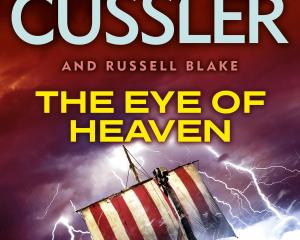
English armies - outnumbered and in foreign territory- achieved victories over the flower of French chivalry, thanks in no small part to the skill and courage of the humble yeoman archers, whose rapid rate of arrow-shots from a simple but powerful weapon, the longbow (with a draw weight of over 100 pounds), proved deadly.
To tell the story of Crecy from the point of view of one of these bowmen has proved a staple of historical fiction. I well remember as a boy being captivated by Ronald Welch's Bowman of Crecy (1966).
More recent retellings from the humble foot-soldier's point of view include Bernard Cornwell's Harlequin (titled The Archer's Tale in the US) and sections of Ken Follett's World Without End.
As a debut novel, Gilman's Master of War stands up well against these heavyweight predecessors, and Gilman's background in part explains his skill as a writer of action fiction.
He has been a fire-fighter, professional photographer, soldier in the Parachute Regiment's Reconnaissance Platoon, and more recently an award-winning television screenwriter on the popular series A Touch of Frost.
The writing is taut and the story fast-paced. For Thomas Blackstone, the central character of the book, joining Edward III's expeditionary army is the only alternative to a criminal's death in the harsh and unjust medieval world where he is no more than an underling peasant and stone-mason.
Blackstone's life as a soldier is brutal, and Gilman does not spare the reader the more gruesome details. But he gives his characters more depth and the warfare more analysis through his clever plot construction.
Crecy and the English campaign are merely the prelude to a new phase in Thomas's life. Fate moves him into the sphere of knighthood and a new role as an agent of the de Harcourt family, which like so many landed and noble families of the time, has lands and factions both in England and in France.
Love, marriage and fatherhood also enter Thomas's life, but the writer's focus is mainly on the tangled politics and conflicts of medieval England and France.
For re-enactment aficionados this book will appeal, and they will be pleased to know that for the paperback and kindle editions the cover illustration has been changed to show the arrow drawn against the correct side of the bow, while the text has been modified to remove those irritating references to the ''firing'' of arrows (which of course one ''shoots'').
All lovers of this type of historical fiction will enjoy Master of War and look forward to the next instalment in a planned trilogy.
• Greg Waite lectures in English at the University of Otago.


